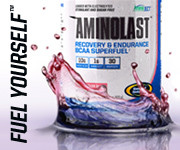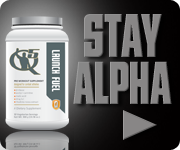No, were not encouraging all you 10th Planet guys! We're talking about Stevia!
In 2008 the US FDA has approved the use of Stevia extracts in food production. Previously you could purchase Stevia in the US, but only as a supplement. Stevia is still banned in most EU countries, but that may be changing soon.
 Stevia is a shrub and a member of the sunflower family that grows mainly in South America. It has been used for hundreds of years by native tribes from Paraguay, Bolivia, and Brazil as both a sweetener and medicinal treatment for a wide variety of ailments. It is believed to have benefits for hypertension, glucose intolerance, obesity, and even osteoporosis. In it’s natural leaf state, Stevia is 35-40 times as sweet as table sugar and the extract is 300 times as sweet.
Stevia is a shrub and a member of the sunflower family that grows mainly in South America. It has been used for hundreds of years by native tribes from Paraguay, Bolivia, and Brazil as both a sweetener and medicinal treatment for a wide variety of ailments. It is believed to have benefits for hypertension, glucose intolerance, obesity, and even osteoporosis. In it’s natural leaf state, Stevia is 35-40 times as sweet as table sugar and the extract is 300 times as sweet.
Japan started using the herb extensively in the 1970s, and currently it makes up about 40% of the Japanese sweetener market. Controversy in the US and EU seems to stem from an anonymous complaint filed with the FDA in the 1991. Some people believe that the complaint was filed by companies from the artificial sweetener industry worried about Stevia’s impact on their existing products. Since Stevia is naturally occurring it doesn’t require and patents and may end up being less profitable than sweeteners protected by laboratory patents.
If you have a sweet tooth and are looking for a natural sweetener that has almost no calories and may even provide some health benefits, give Stevia a try. You can find it under the trade names TruVia and PureVia (Coca-Cola and Pepsi Co respectively) and also Stevia in the Raw. There are a lot of new cookbooks with recipes for Stevia and it seems to be gaining widespread acceptance as a replacement for the less healthy artificial sweeteners, and even sugar itself.
 Stevia is a shrub and a member of the sunflower family that grows mainly in South America. It has been used for hundreds of years by native tribes from Paraguay, Bolivia, and Brazil as both a sweetener and medicinal treatment for a wide variety of ailments. It is believed to have benefits for hypertension, glucose intolerance, obesity, and even osteoporosis. In it’s natural leaf state, Stevia is 35-40 times as sweet as table sugar and the extract is 300 times as sweet.
Stevia is a shrub and a member of the sunflower family that grows mainly in South America. It has been used for hundreds of years by native tribes from Paraguay, Bolivia, and Brazil as both a sweetener and medicinal treatment for a wide variety of ailments. It is believed to have benefits for hypertension, glucose intolerance, obesity, and even osteoporosis. In it’s natural leaf state, Stevia is 35-40 times as sweet as table sugar and the extract is 300 times as sweet. Japan started using the herb extensively in the 1970s, and currently it makes up about 40% of the Japanese sweetener market. Controversy in the US and EU seems to stem from an anonymous complaint filed with the FDA in the 1991. Some people believe that the complaint was filed by companies from the artificial sweetener industry worried about Stevia’s impact on their existing products. Since Stevia is naturally occurring it doesn’t require and patents and may end up being less profitable than sweeteners protected by laboratory patents.
If you have a sweet tooth and are looking for a natural sweetener that has almost no calories and may even provide some health benefits, give Stevia a try. You can find it under the trade names TruVia and PureVia (Coca-Cola and Pepsi Co respectively) and also Stevia in the Raw. There are a lot of new cookbooks with recipes for Stevia and it seems to be gaining widespread acceptance as a replacement for the less healthy artificial sweeteners, and even sugar itself.





